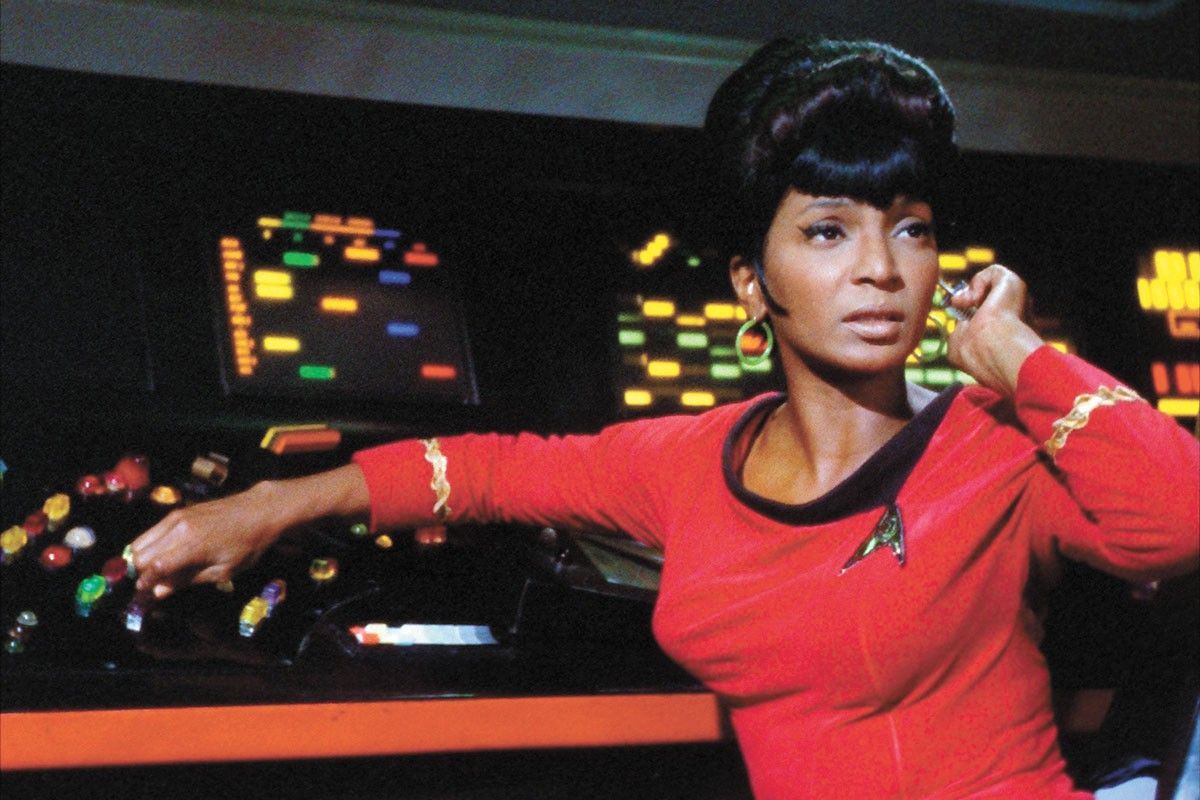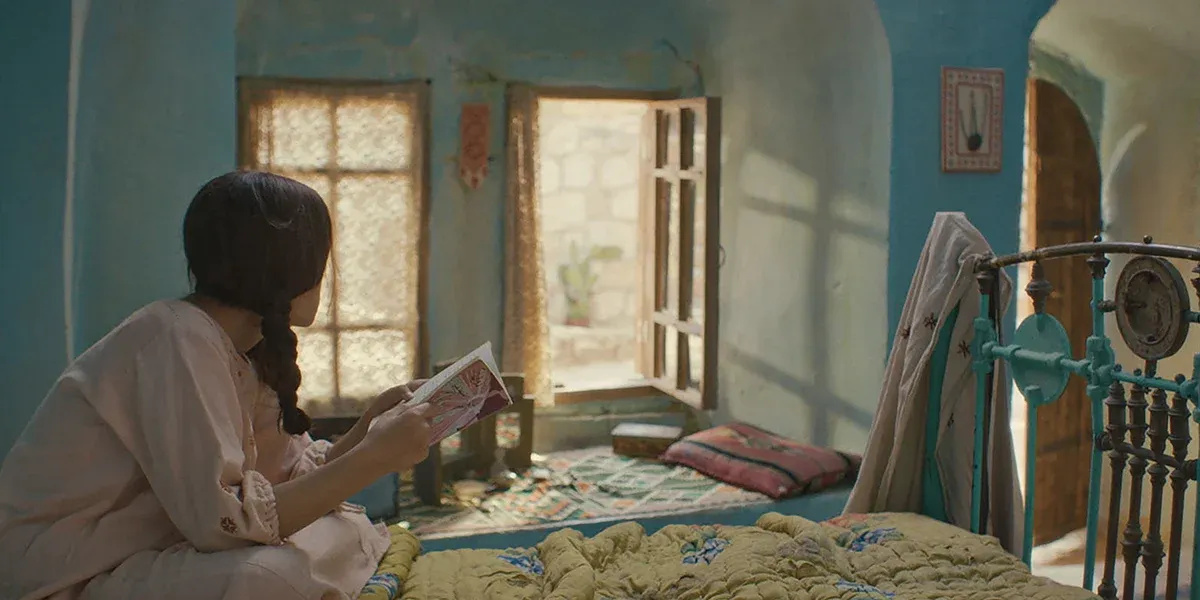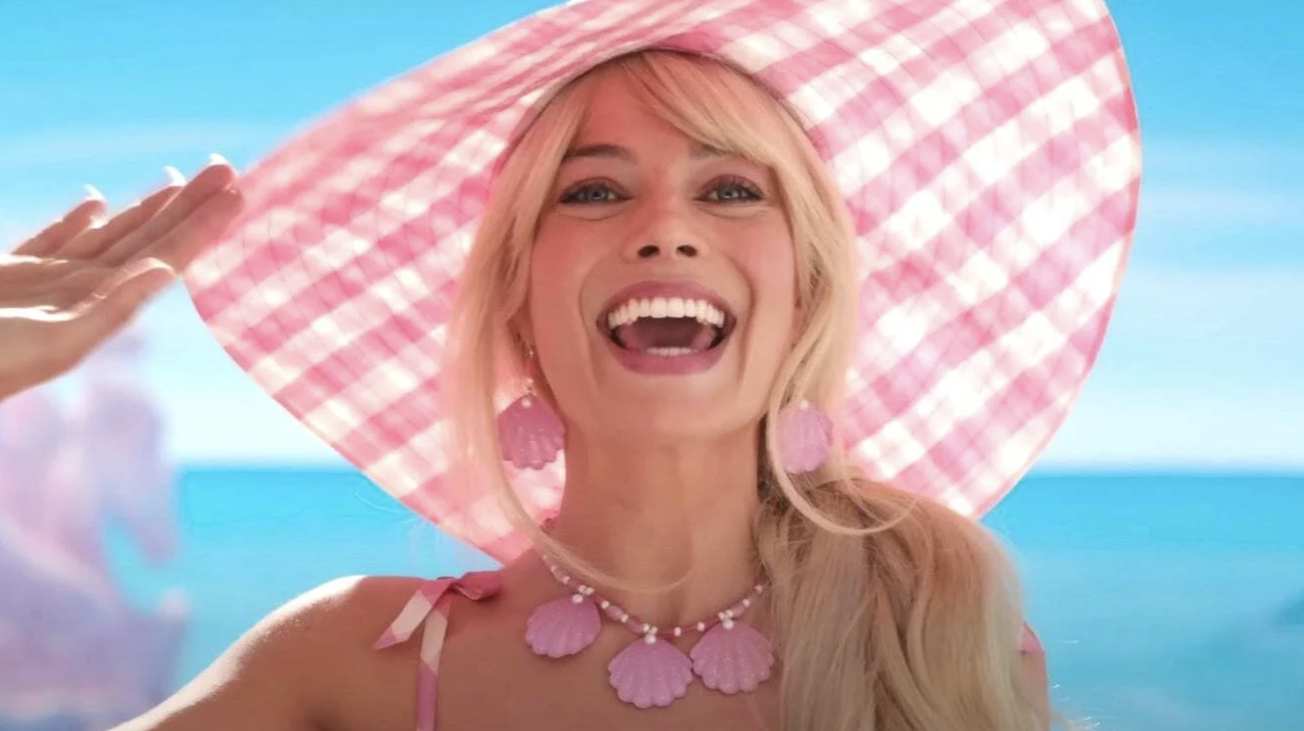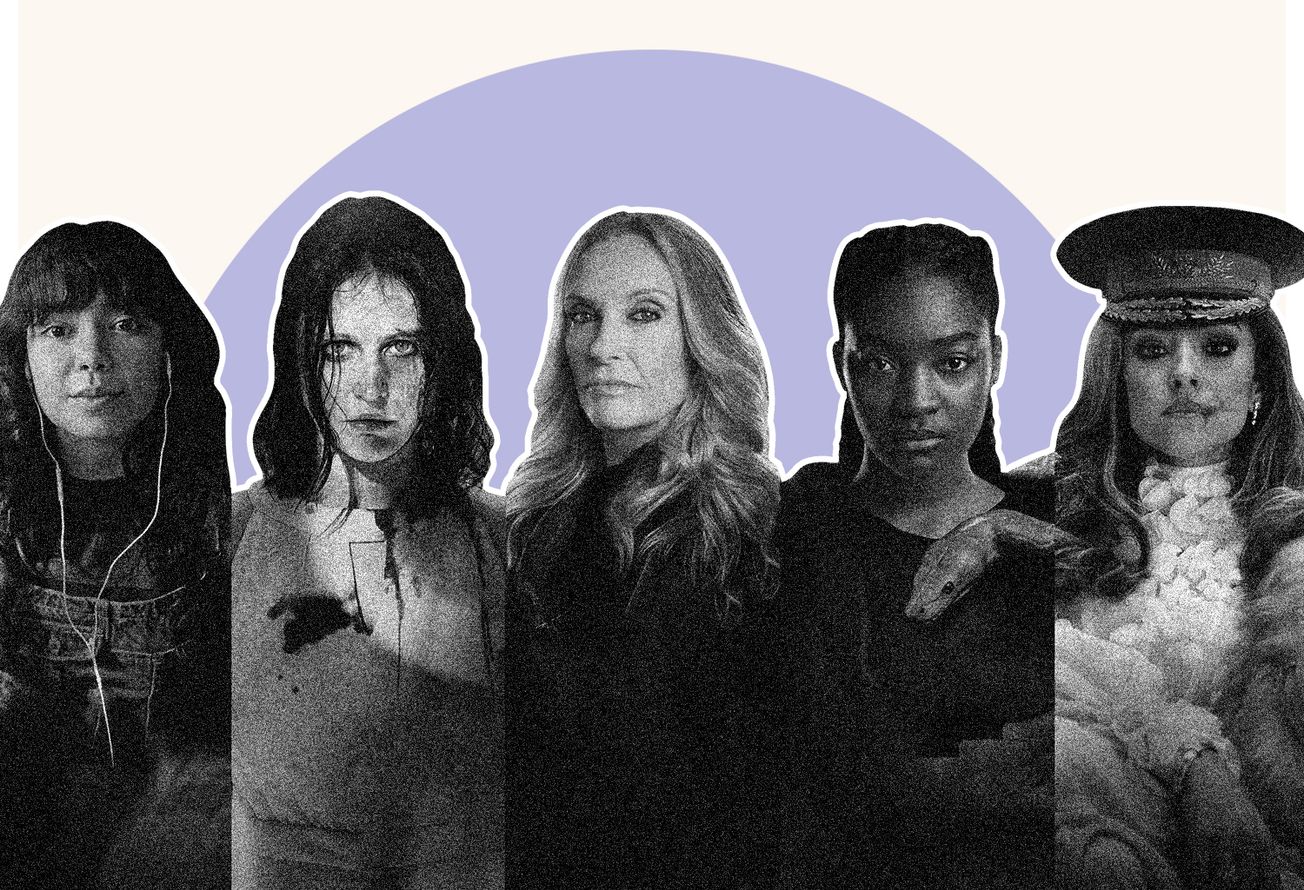Image: Nichelle Nichols as Lieutenant Nyota Uhura in Star Trek
Imagine a smart character on a television series, the kind of person society calls a nerd. The good news is that intelligence is no longer the sidekick to the story; wildly successful shows like The Big Bang Theory celebrate nerd culture. The bad news is that nerds remain largely white and male, with the Amy Fowlers few and far between. The Office has Dwight Schrute and Gabe Lewis. Silicon Valley has Richard Hendricks and Nelson Bighetti. These men are admired because of their intelligence and, at times, obsessive personalities. They do not possess the cheekbones of Timothée Chalamet or the physique of Chris Hemsworth. If, however, a show's nerdy protagonist happens to be female, she remains subject to rigorous, unrealistic beauty standards.
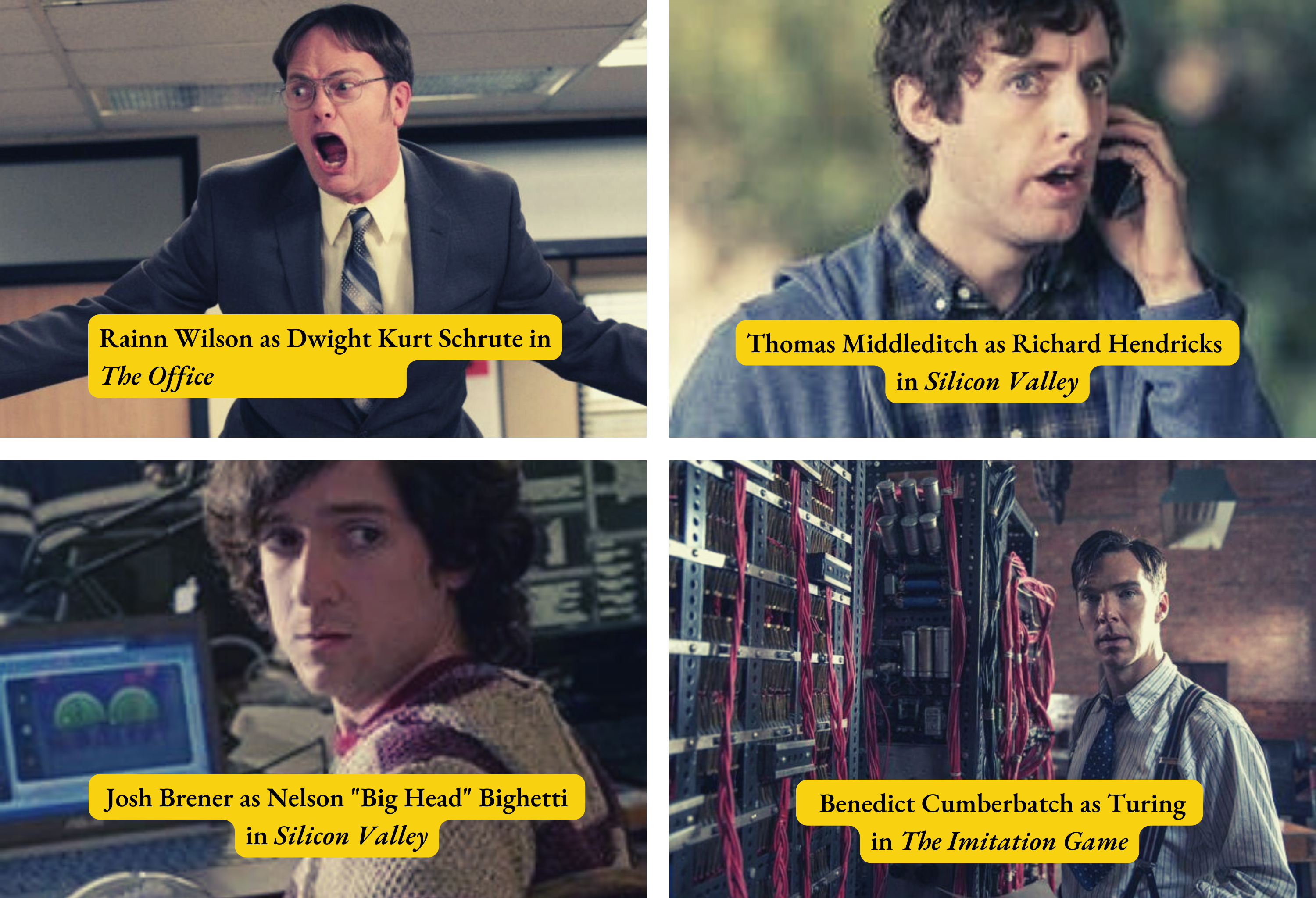
You know the kind. Young. Thin. Perfect hair and skin and teeth and eyes. Perfect pout. Beth Harmon in The Queen’s Gambit, for example. In The Big Bang Theory, Amy Fowler doesn’t fit this description, but then she gets a makeover. There is nothing unusual about these representations. We’ve come to expect celluloid women to morph into aspirational phantoms for generations.
There is more choice now in the content we consume than ever before. Netflix, Hotstar, Amazon Prime, and YouTube offer us binge-worthy stories for every season. With the pandemic keeping people at home, viewership on OTT platforms has increased manifold. In 2021, Netflix content earned thirty-six Oscar nominations. This indicates that OTT platforms can offer meaningful, engaging, award-winning content.
There is a landslide of stories hurtling towards us, and we are just a click away from being sucked in. Naturally, one would assume more stories would mean more representation. Perhaps, one would imagine, nerds could become more than bespectacled, comic book collecting, cishet white men. The key word here is could, because the opportunities streaming platforms have presented have largely been dilutions of effort at greater representation.
Opportunity Number One. The Queen’s Gambit is a historical drama that highlights the story of a woman who conquers the male-dominated world of chess. The protagonist grows up in an orphanage with a knack for the game. She becomes wealthy and successful, a genius-cum-fashion-icon. Anya Taylor-Joy , who plays the chess prodigy, is stunning. A wonderful actor, and symmetrical in all the right places. The show successfully centres the genius of the young girl, and yet, it remains a lost opportunity. Could a person of colour have played the role? The Queen’s Gambit could be an inspiration for all smart girls. But then it deploys the familiar formula—sex appeal sells. Nerdy alone is not enough to evoke desire when the nerd in question is not a man.
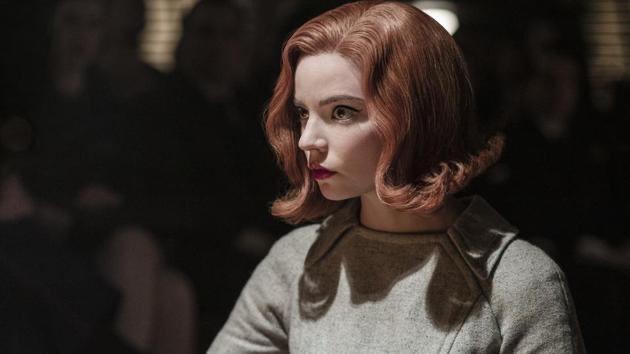
Opportunity Number Two. Never Have I Ever is a show about teens. There is no better setting to dissect identity and clique culture than an American high school. The protagonist is Devi, a South Asian first-generation immigrant nerd. Her best friends include an East Asian thespian and a Latino, queer, robotics enthusiast. Devi’s crush—the boy she tutors—is a half-white, half-Japanese senior. The show’s saving grace is its ethnic spread. And yet, the pressure to force fit this rainbow cast into beauty standards is evident. Devi, like her best friends, is thin, blessed with a full head of hair and clear skin. She glows, acne-free, with youth. Her friend describes Devi as “an Indian Kardashian”. Like Kim Kardashian, who looks brown but is white, Devi inhabits an exotically confusing space too—she is not white but not so brown either. As long as they border on exotic, it is possible for people of colour to appear beautiful to a global audience. Like Aishwarya Rai—“the most beautiful woman on the planet”.
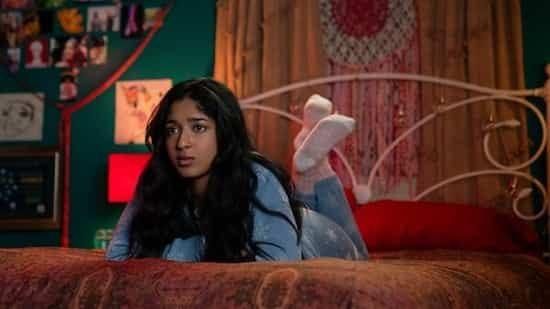
The Queen’s Gambit and Never Have I Ever aren’t the only lost opportunities in storytelling. There have been a few female nerds in film and television history, smart women who found a way to make their intelligence their superpower. But the writing failed to untether their characters from their looks. A young chiseled Angelina Jolie plays the cyber genius Acid Burn in Hackers. Jolie plays the character with full makeup and perfect looks—cast against the other traditionally geeky hackers, all men. In the live-action version of Scooby Doo, Linda Cardellini plays Velma Dinkley, the smartest member of the group. And yet, she runs in form-fitting clothes and unwavering hair even as she battles monsters and solves mysteries. Tina Majorino as Cindy Mackenzie, the hacker in Veronica Mars, Jennifer Jason Leigh as Allegra, the creator of a parallel universe in eXistenZ—the list goes on—most of these women are white and conventionally beautiful. Star Trek's Lieutenant Nyota Uhura (xenolinguist and cryptographer) was played by Nichelle Nichols, a black actor but who ticked all the Western—now practically universal—beauty standards.

“What—if anything—is so great about beauty?”, asks Lucinda Rosenfeld in her essay, "Whither the Plain Female Protagonist? On 'Great Beauty' in Literature". Sure, we like looking at pleasant things, pleasant people. The attractiveness of a person, on or off-screen, makes us desire them. We are drawn to those we desire, more invested in their story. Beauty is a combination of physical traits that indicate fertility, an evolutionary test in fitness. One might call it the original click-bait.
Pretty girls are more likable. The nerdy female protagonist, smart as she may be, must also be likable, both as a friend and as an object of desire. Which begs the question: How do we decide whom we desire? If the name of the game is survival of the fittest, then personality, even intelligence, must count for something. Which brings me back to nerd culture.
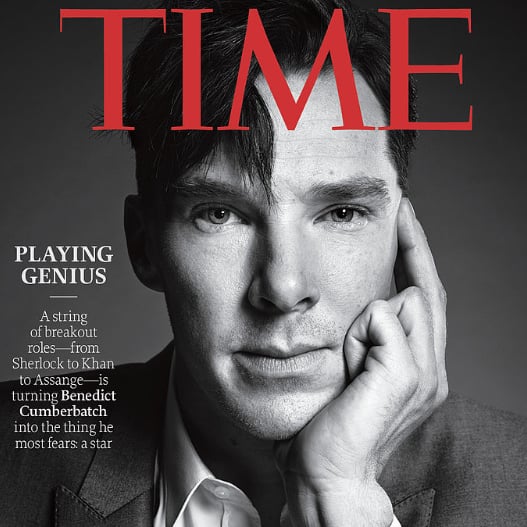
Imagine a story in which a woman's appearance is irrelevant to her intelligence. Perhaps, she would still be desired and considered beautiful—albeit unconventionally—like Benedict Cumberbatch. Some consider him a bit of an aberration in terms of beauty. In fact, Cumberbatch himself claims he has a “weird face”. Perhaps this woman's love of code would draw others to her, like Benedict Cumberbatch in The Imitation Game. Or her keen observational powers, like Cumberbatch in Sherlock. Or her obsession with time, like Cumberbatch in Hawking. Or her knowledge of astral planes, like Cumberbatch in Dr. Strange. Genius-misfits can be desirable too.
A female nerd can be feminine, but she doesn’t have to be. She can be sexual, but she doesn’t have to be. She can be black, brown, disabled, queer or trans. She doesn’t have to be anything. She is enough.


